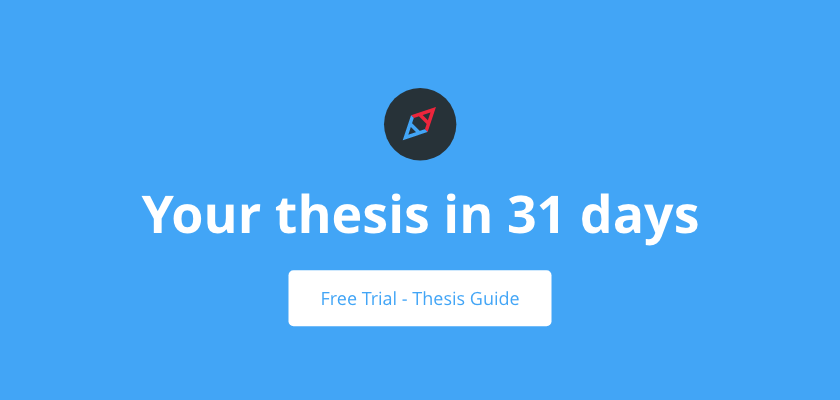A literature analysis for the bachelor’s or master’s thesis is the systematic research, acquisition and examination of scientific texts and reliable publications including papers in regard to the specific questions of the topic.
A literature analysis is the systematic research, procurement and analysis of scientific literature including papers and their contents with regard to specific issues.
The result is a well-structured and detailed collection and overview of answers to the leading question of the thesis in the form of relevant data, arguments and descriptions of the topic.
What is the purpose of a literature analysis or review?
The purpose is to understand and describe the current state of research as precisely as possible in order to discover the research gap, the research question and the detailed questions. Therefore, both the procedure and the results must be documented accurately. This is the only way the discovery of the gap and questions can be understood.
What are the advantages of a literature analysis compared to other methods?
This question is irrelevant because you have to complete this evaluation for your thesis in any case. There's no way around it. Without the evaluation of sources, the building material (base) for the text is ultimately missing... But let's look at what would happen if this was the only method used and no further empirical analysis was done. These are the advantages:
- No dependence on others
- Plenty of sources
- Close orientation to literature
- Easy to plan if the sources are available
- Ability to write quickly
- Less effort
- No wasted time waiting for data
- Fewer risks and therefore fewer surprises.
What are the disadvantages of a simple literature analysis?
The disadvantages are:
- You can spend forever searching and reading
- Danger of getting lost in literature
- Methodology is difficult to grasp because it is mainly mental operations that often have strange names.
- Without adequate preparation (leading question, detailed questions, formulation of objectives in the proposal and then in the introduction) you don't know exactly when you will be finished. This puts the whole project in danger.
Under what conditions can I do a simple literature analysis?
- You need a clear guiding question.
- You must find many good and abundant sources.
- The sources must contain the information and arguments for the answers.
BUT: sometimes you must do a simple literature evaluation because you cannot or may not do empiricism.
Which mistakes must I avoid and how?
- Under no circumstances should you read for weeks. Reading without aim only confuses you.
- You must always take notes, otherwise you will not find anything.
- You should not start without a framework of questions with guiding questions and detailed questions.
- It is essential that you first define the terms related to the topic to make your way to the work’s goal.
- Only reputable and productive sources are suitable.
- Avoid plagiarism otherwise it was all for nothing. To do this, follow these simple rules.
Which tools can I use?
- Questions are your most important tools.
- A guide to evaluating sources is very important.
- You need a procedure for researching sources.
Examples will help you find answers to your questions with the help of literature. You can find all the tools in the Aristolo Thesis Guide.
What's the best place to start?
Start with the research question, the goal and the detailed questions. Then deal with the terms. Proceed as follows:
- Clarify your terms with the help of sources. Write out the definitions with references to the source.
- Search for models in scientific sources such as reference books and studies.
- Find other good sources with relevant content.
- Look for the answers to your detailed questions in the literature. If you find some, the question is acceptable, if not, then revise it.
- Work through your entire question list.
How does the Aristolo Thesis Guide help you with a literature analysis for the Bachelor’s or Master’s Thesis?
The Thesis Guide provides approaches to simple literature evaluations so you can learn how to formulate questions, find the appropriate sources and analyze them to create your own thesis.
Good luck writing your text!
Silvio and the Aristolo Team
PS: Check out the Thesis-ABC and the Thesis Guide for writing a bachelor or master thesis in 31 days.


